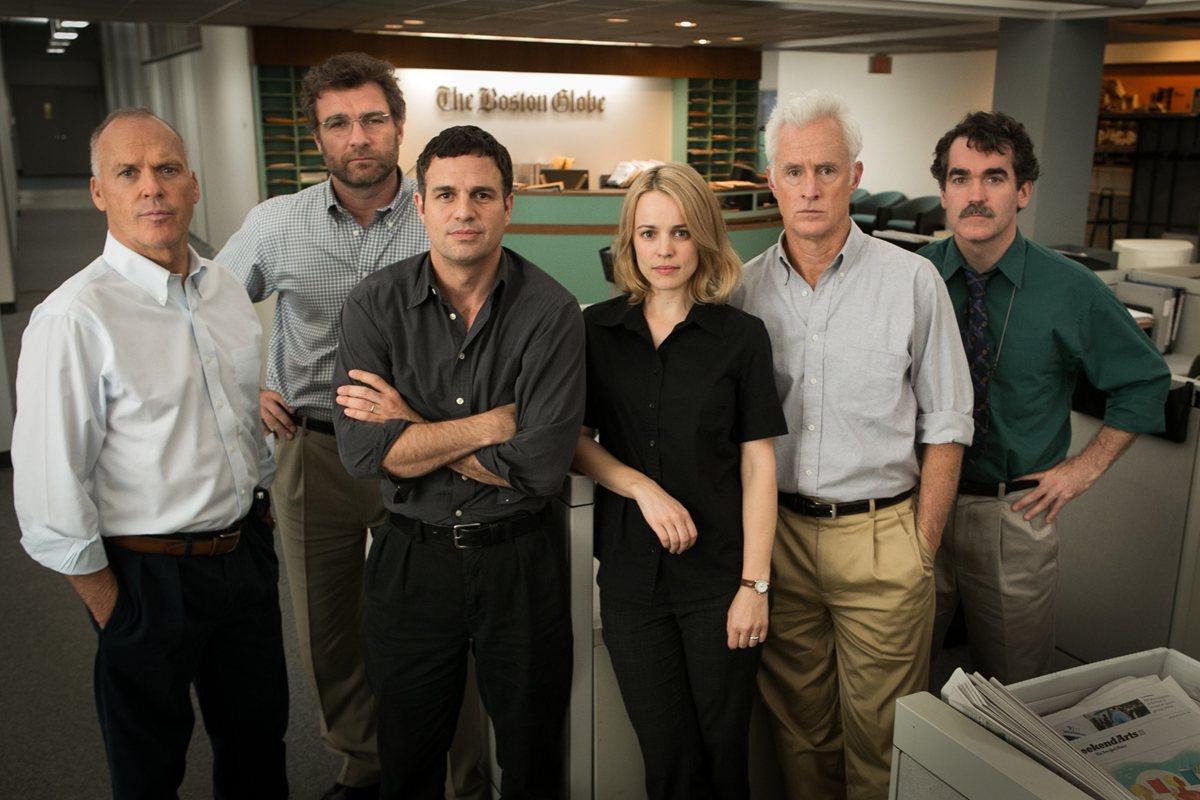Spotlight follows the journey of a group of Boston Globe investigative journalists in uncovering child sex abuse in the Boston Catholic archdiocese. While the investigation itself was the result of tireless reporting efforts, the task taken on by co-writer Josh Singer ’94 to depict investigative journalism on the big screen provided a similarly challenging mission.
Prior to working on Spotlight, Singer had written the screenplay for The Fifth Estate, which explored how WikiLeaks founder Julian Assange and colleague Daniel Domscheit-Berg assiduously identified abuses by the elite, using the hotly-debated Internet upstart to expose corruption by those in power. Singer’s film tanked at the box office, but there were certain elements that he felt he did not get to incorporate into the movie. He was pleased, therefore, when he was given the opportunity to work on the screenplay for Spotlight along with Tom McCarthy. Little did he know that this film would go on to win him an Academy Award for best original screenplay. “I was excited when I was told about [Spotlight],” says Singer. “I thought there was an opportunity in telling this story if we just depicted good local journalists doing their job, and that there was a real opportunity to actually show what the problem is with Metro Dailies going out of business and reporters losing their jobs.” Singer found it important to tell this story in particular because “when you look at all of the biggest stories in the world [they all] start local: Watergate started with two local Metro reporters looking into a break in.” Those two reporters went on to take down a president. “The Catholic Church story here starts with a couple local journalists looking at the Boston archdiocese, [and it] becomes a huge international story.”
What makes this story different from other investigative journalism films is that fact that “it doesn’t fall into the trap of painting those of us on the Spotlight Team as heroes or romanticizing what we do,” says Spotlight team reporter Mike Rezendes, whose character was played on-screen by Mark Ruffalo. “Instead, it shows us stumbling in the dark, going down blind alleys, making mistakes, losing our tempers––and getting the story.” Jim Sleeper ‘69, Lecturer in Political Science at Yale University, agrees that the film gives an exceptional dramatization of “accountability” journalism. Accountability journalism, Sleeper says, “is distinguished from ‘access’ journalism – the former emphasizing the long, hard investigative work that holds the powerful to account and that therefore often makes enemies.” In the film, we see that the powerful attempting to manipulate press coverage by developing “cozy relationships” with the journalists, for example when when Cardinal Bernard Francis Law tries to convince Boston Globe editor Marty Baron to side with the Church, suggesting that “the city flourishes when its great institutions work together.” However, to thwart this, institutional partisanship Sleeper avers that reliable journalism needs both “a trusting, honest relationship with sources at the top, but also enough independence to work at finding out things they don’t want you to know and that they’ll be angry if you report.”
While Spotlight may have offered new insight into the grueling yet rewarding way in which investigative journalism functions, we as students and citizens also have a duty to the public. As Sleeper warns, “Yalies especially are offered such cozy relationships and compromises throughout life, if they are ascending into one kind of elite or another.” And as Singer mentions, it is not as if a new movie about investigative journalism is being released every year. “These films are rarities,” he says. There have been very few films involving investigative journalism outside the United States in recent decades. Perhaps the only significant domestic film before Spotlight is All the President’s Men, which chronicles how Bob Woodward and Carl Bernstein broke the story about the Watergate Scandal. In short, the public cannot rely on the compelling nature of films to stimulate the spirit of journalistic inquiry. In the end, it is “important to spread the word and to get more people to get out and see the movie and to get more people to realize how important this kind of journalism is and more people committed to becoming journalists, or at the very least, just buying their local paper,” says Singer.
Finally, it seems that society today gets bogged down in quick and easily accessible news, which takes attention away from major stories. “I think there is way too much opinion, and more celebrity news than anyone needs,” says Rezendes, “but I also know there are incredibly talented journalists working all over the country as they hold powerful institutions and individuals accountable for what they say and do, literally safeguarding our democracy.” But Singer points out that our country’s newsrooms are waning. “The newsroom is and was this really great forum and because you have experience and a code of ethics and craft that was learned and passed down within the newsroom. There is definitely a refined approach to story telling and to what stories to put out there.”
In the end, the biggest impact we often have is at the local level. “If you look at the Penn State story, that was a local paper,” says Singer. “I think it was a 25-year-old reporter; she did great work and won the Pulitzer. Nobody had broken the Sandusky story before that. When I was in college, all my aspirations were national.” But “if you look at stories that go national, from the Penn State story to the Flint, Michigan story, to our story, they all begin as local investigations.” So where do we Yalies go from here? Singer suggests that “if this movie excites you, if you want to get into journalism, go take a job at the New Haven Register, go take a job at the Philadelphia Inquirer, and I think you’ll see much more.” Importantly, he says, it will give you the opportunity to ask the hard questions.

